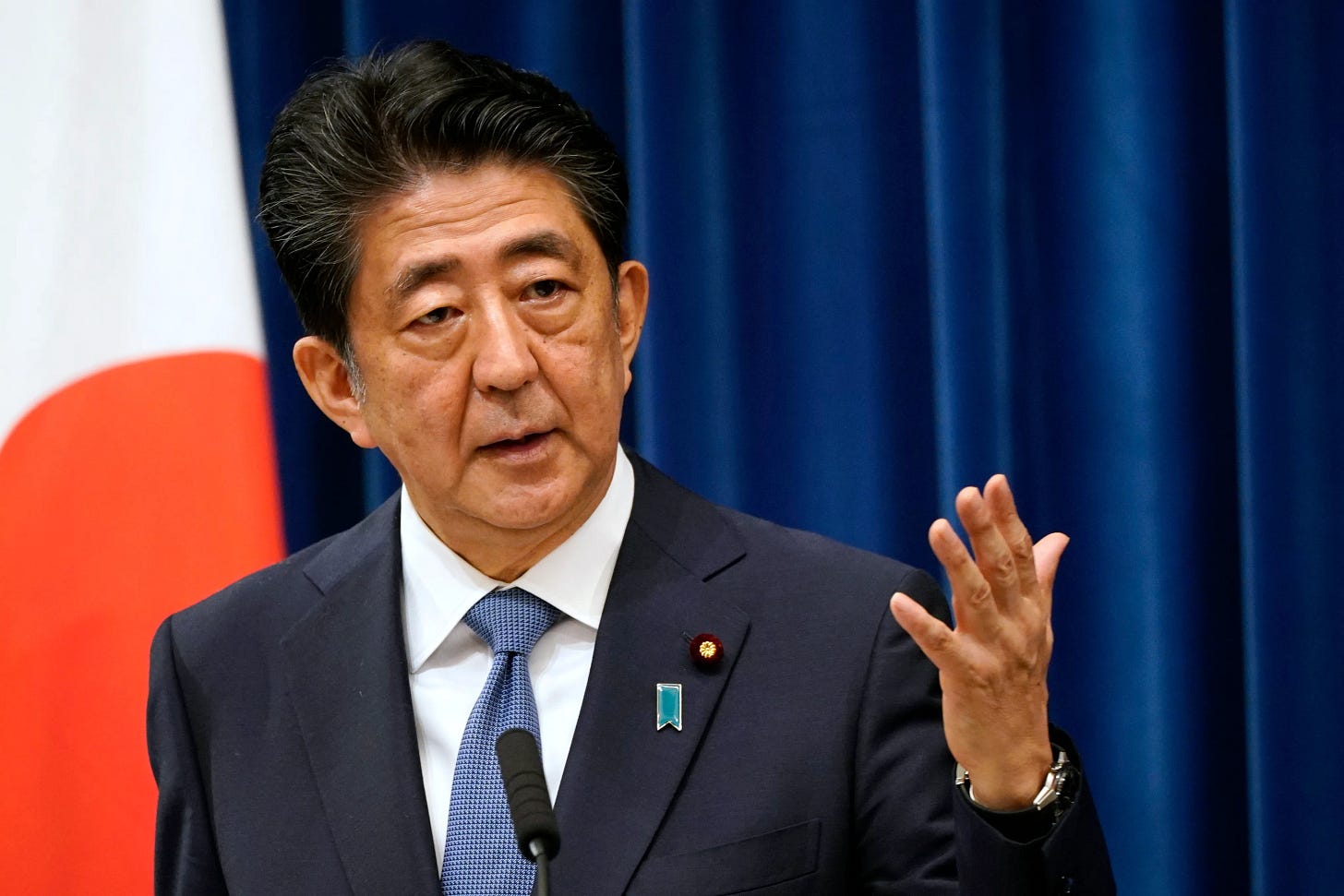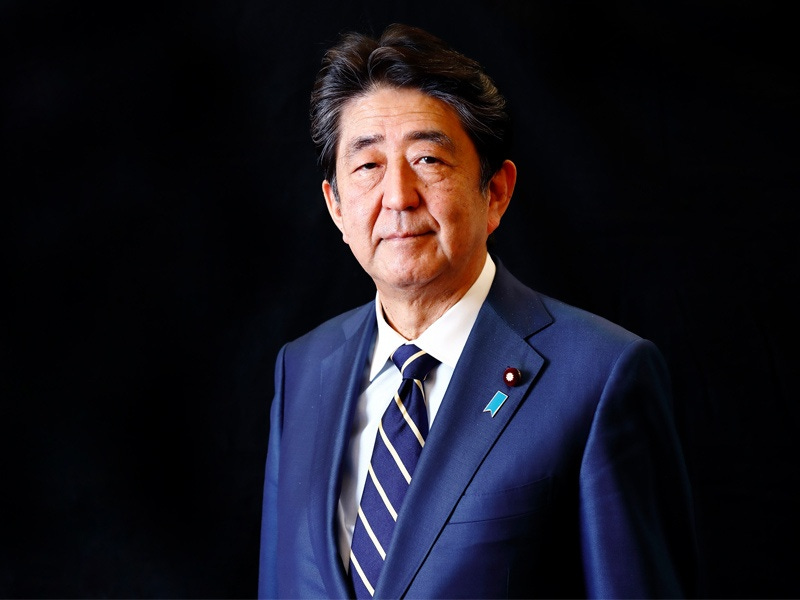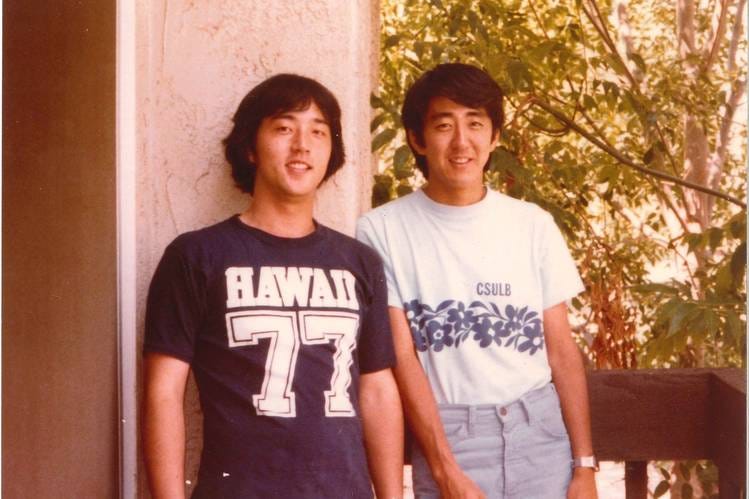The Legacy and Assassination of Shinzo Abe - One Year Later
Japan's longest-serving prime minister was murdered in broad daylight, but the world is still trying to make sense of his killing — and Abe himself.
Japan has the reputation of being a relatively safe and peaceful country, but you wouldn’t have believed that one year ago when a lone gunman shot Shinzo Abe before a crowd of around 300 spectators. After being rushed to hospital, medics declared the former prime minister dead hours later, and the next few days of highly controversial revelations shocked the country to its core.
Abe’s last moments were spent giving a campaign speech in Nara Prefecture for a fellow Liberal Democratic Party candidate ahead of election season on July 8, 2022. It was your standard political rally in an urban area, but one that had been decided upon hastily only the previous day. In the aftermath, police remarked that less security was provided than should have been made available for such a high-profile politician like Abe.
Questions were immediately raised around how such an assassination could have happened, both due to the public setting and the fact that the perpetrator used a homemade firearm in a country where guns are notoriously difficult to acquire. When the assassin’s identity was revealed, a disgruntled unemployed 41-year-old man named Tetsuya Yamagami with service in the Japanese navy, public speculation only grew more intense.
The intrigue around Abe’s assassination has not waned a year on, and the legacy of the prime minister himself remains a debated one.
Born Into Politics
Shinzo Abe was born into what can essentially be called the rough Japanese equivalent of the Kennedy family with its political prominence. His maternal grandfather was Nobusuke Kishi, a controversial post-war prime minister suspected of “Class A” war crimes and later made infamous for sparking the 1960 Anpo protests over the U.S.-Japan Security Treaty. Shinzo’s paternal grandfather, Kan Abe, was on the opposite side of the political spectrum and had strongly disagreed with the war effort waged by Hideki Tojo while serving in the House of Representatives as a pacifist. Shinzo’s father, Shintaro, became a prominent member of the ruling LDP and successfully took Kan’s seat representing his district of Yamaguchi Prefecture. Abe also had two brothers; one who stayed apolitical and one who later became a defense minister.
Yet despite this background, Shinzo Abe himself was not described as very political by those who knew him in his youth. He instead chose to study abroad at the University of Southern California in 1978, gaining proficiency in English and working in the American branch of Kobe Steel at the behest of his father. From the testimony of his colleagues published in later books, Abe did not ask for special privileges as the son of a politician and demonstrated deep loyalty and commitment to those he worked with. Upon his assassination last year, even Abe’s political rivals spoke highly of his character.
But Shinzo could not avoid politics forever, and Shintaro hired him as a personal secretary after recalling him back to Japan. Abe grew more conservative around this time as he shaped his ideology, but working with his father allowed him to visit dozens of countries throughout the 1980s at the height of Japan’s economic influence. This instilled within Abe the importance of maintaining ties with world leaders and understanding what role his country played in international affairs, traits that would be seen throughout his entire political career. Continuing the family tradition, Shinzo won his father’s Yamaguchi district seat in 1996 five years after Shintaro had passed away.
Becoming Prime Minister (Twice)
After working as chief cabinet secretary in the administration of Prime Minister Junichiro Koizumi, Abe became Japan’s youngest postwar prime minister in 2006 at the age of 52. His mentor Koizumi had pushed for neoliberal policies while in office, but Abe was more concerned with bolstering a secure social safety net that could aid Japan’s most disaffected people. His platform additionally included revising Article 9 of the constitution, creating a more equal relationship with the U.S., and emphasizing more top-down political leadership.
Yet his first term was a short-lived one, with his cabinet appointees becoming embroiled in scandals and the prime minister himself being criticized for focusing more on foreign policy issues instead of domestic economic ones. The Liberal Democratic Party lost to the Democratic Party of Japan in a landslide at the 2007 elections, leading to opposition control of the House of Councillors for the first time since 1999.






